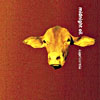
Comment
on this story
|
 |

This Week: Three obscure to legendary veteran acts put out work ranging from good to awful.
 David Kilgour
David Kilgour
A Feather in the Engine (Merge)
It's nearly impossible to keep track of David Kilgour's 20-year career as the mastermind of New Zealand alternative pop. The Clean, the band he formed with his brother Hamish in 1979 and then disbanded in 1981, has sporadically reunited and recorded (as with last year's winning album Getaway), and he's been remarkably prolific as a collaborator (with Barbara Manning and others), with his own projects (the Great Unwashed, Stephen), and five solo albums. One thread that has been consistent, however, is Kilgour's mix of brilliant off-kilter pop with noisy, fuzzed-out psychedelic guitar experimentation.
On his new album, A Feather in the Engine, the two sides of Kilgour's talent bleed into each other. The sequence of the first two songs—"Sept. 98," a moody and exploratory instrumental, and then "Slippery Slide," a shiny three-minute pop gem with twangy guitar and tinkly piano—is disorienting, but it doesn't take long for Kilgour to find his balance, reaching the gentle plateau of folk-pop and guitar distortion that bands like Yo La Tengo and Eleventh Dream Day have explored in the past few years. Kilgour seems less interested in reaching new heights of weirdness here, choosing instead a sheen of quiet rustic nostalgia (acoustic guitar, horns, strings) with atmospheric effects scattered throughout. It's a haunting record; other people might have been here before, but a visit with Kilgour offers new rewards.
—Matthew T. Everett
 Midnight Oil
Midnight Oil
Capricornia (Liquid 8)
The Oils have unflaggingly purveyed their power and passion for almost a quarter of a century now, far outstaying any theoretical welcome for such a straightforward rock band. Capricornia—named for a Queensland region in their native Australia—recaps their radio-friendly past with a textured simplicity. Case in point is the acoustic-driven "Luritja Way," an instant classic with trademark vocal harmonies and aggressive interludes. Or the title track, where singer Peter Garrett radiates warmth in its campfire refrain. This is the sound of the Oils in their golden years—or as the jangling opener has it, the "Golden Age."
Main songwriters Jim Moginie (guitar) and Rob Hirst (drums) aren't as musically ambitious as they once were, content to let the band's personality fill in foursquare structures. "Tone Poem" is decorated with cascading guitar digitronica; the hymnic "Under the Overpass" builds into U2-like grandeur. Horns color the gritty East Timor observation "Say Your Prayers," with Garrett railing against "compassion fatigue." All compelling, as is the melodramatic, piano-based closer, "Poets and Slaves" (and its instrumental offspring, "A Crocodile Cries").
Other tunes simultaneously access the Oils' pub-rock roots and the declamatory posturing on today's airwaves. Not that Capricornia is likely to return the band to popular favor, but devotees will find it a shot in the arm. In the penultimate track, Garrett sings with optimistic resignation, "there's no end to the world I see." As long as that stays true, Midnight Oil will continue to burn.
—Chris Mitchell
 Willie Nelson
Willie Nelson
The Great Divide (Lost Highway)
There has been a trend of late for influential artists to produce collaborative albums. Carlos Santana's Supernatural release met with overwhelming success. Jools Holland threw his hat into the ring with Big Band Rhythm and Blues. However, because an artist has the influence and prestige to do so doesn't necessarily mean that it should be done. With The Great Divide, Willie Nelson offers up a collaborative effort featuring Rob Thomas, Kid Rock, Sheryl Crow and Bonnie Raitt. The album is a lackluster collection of songs produced in an effort to either revive a fading career or bolster a dwindling bank account. Thomas provides Top 40 appeal ("Shut up and Kiss Me"), while Raitt adds credibility on the sentimental duet "You Remain." The title track stands as the only attempt above mediocre on the list. While reflective, The Great Divide lacks the integrity of Nelson's Highwaymen era or, more recently, the musicianship of 1998's Latin-tinged Teatro. I have the utmost respect for Willie Nelson as one of the most talented and influential artists of our time. However, in the future, I wish he would use his talents for good rather than feel obligated to produce something for the sake of peer pressure. Just say no, Willie.
—Clint Casey

April 11, 2002 * Vol. 12, No. 15
© 2002 Metro Pulse
|